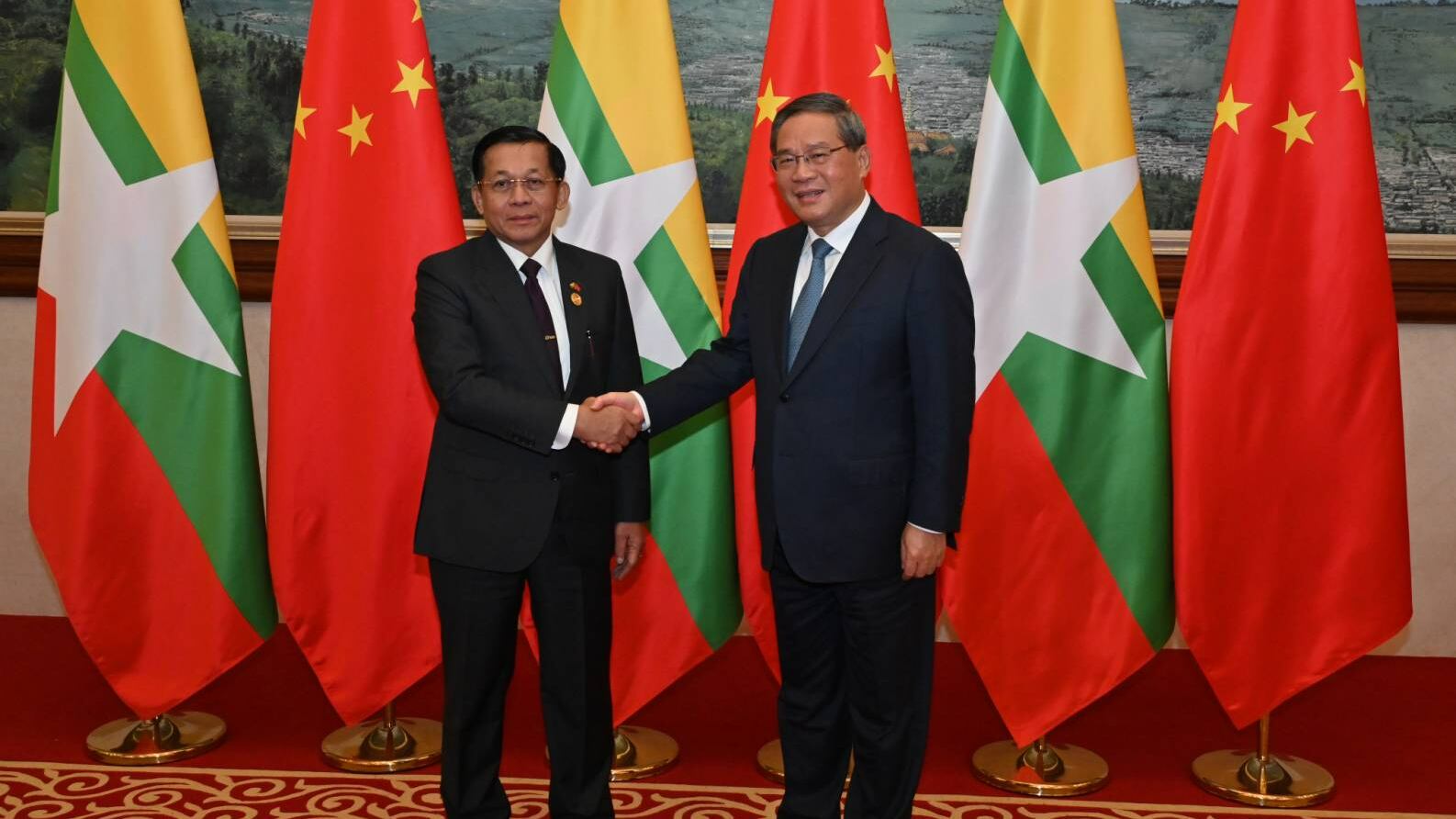
Myanmar’s junta leader has renewed a call to insurgents in northeastern border regions to talk peace, telling Chinese Prime Minister Li Qiang while on a visit there that stability was crucial for economic development and trade.
Sen. Gen. Min Aung Hlaing has been in the southern Chinese city of Kunming this week on his first visit to China since he seized power in a February 2021 coup, triggering an armed uprising that has raised questions about the sustainability of military rule.
China has extensive economic interests in Myanmar including energy pipelines that traverse the Southeast Asian nation, from the Indian Ocean to southern China’s Yunnan province, and pressing Myanmar’s rival sides to end the turmoil.
“The door of peace is always open if they genuinely want peace,” the military-run Global New Light of Myanmar newspaper quoted Min Aung Hlaing as saying in his meeting with the Chinese prime minister on Wednesday.
An insurgent alliance based in Shan state, on the northeastern border with China, made unprecedented gains against junta forces after launching an offensive on Oct. 27 last year, capturing at least five major border trade crossings. Insurgent allies in other parts of Myanmar have also been on the offensive, putting the military under unprecedented pressure.
Analysts say China has become frustrated with the junta’s failure to end the chaos. While maintaining ties with the junta, China also has contacts with anti-junta insurgent groups in northern and northeastern Myanmar, and has called on both sides to negotiate.
China has also has pressed the insurgents to end their war, closing border crossings to put economic pressure on them. China has also closed its border to civilians fleeing fighting in some places.
“China supports Myanmar in advancing the political reconciliation and transformation, and stands ready to work with Myanmar to steadily advance the construction of the China-Myanmar Economic Corridor under the framework of high-quality Belt and Road cooperation,” Li said, according to China’s Xinhua news agency.
Li also reiterated China’s support for Myanmar’s election next year.
Min Aung Hlaing said the three rebel groups in Shan state “should have clear and specific actions for peace so that dialogue can materialize.”
“The armed insurgents should do what needs to be done instead of giving priority to their needs and wishes,” he said.
‘Confess to crimes’
Min Aung Hlaing made a similar offer of talks in September, calling on insurgents to abandon their “terrorist way” and join the election.
But insurgent groups and a parallel civilian government spearheading opposition to military rule dismissed the offer as a trick by the junta to burnish its international image.
Responding to Min Aung Hlaing’s later offer, a spokesperson for one of the Shan state groups, the Ta’ang National Liberation Army, or TNLA, suggested the junta chief was not being sincere.
“People calling for peace need to be the kind of people who actually want peace,” TNLA spokesperson Lway Yay Oo told Radio Free Asia.
“These declarations about terrorist groups need to end. In this sense of bringing about peace, he needs to confess to the crimes he committed.”
A political analyst said Chinese pressure on the insurgent groups to give up their fight, in particular the closure of border crossings blocking essential goods from entering Myanmar, could eventually have an impact on the conflict but it was not clear it would be a lasting one.
“In our view, in the long run, it’s just Chinese pressure,” said Aung Thu Nyein, a member of the Institute for Strategy and Policy – Myanmar think tank. “If some important things are prevented from flowing, we think this will gradually stop northern groups from fighting.”
China has pushed the insurgents into ceasefires this year but they proved to be short-lived.
source : Radio Free Asia
